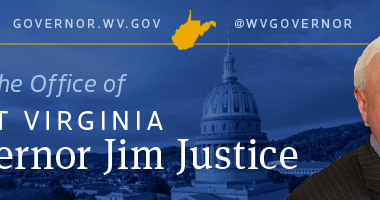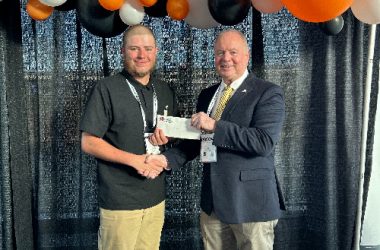CHARLESTON , W.Va. — November interims at the Capitol were highlighted by a legislative audit of the Hatfield McCoy Regional Recreation Authority, an audit that found the authority, which manages a network of ATV trails in
southern West Virginia, has been highly successful operating as a non-profit corporation.
Just one problem: Under the 1995 law creating the authority, it actually is a quasi-government agency, and should have been complying with state regulations for purchasing, employment and ethics for the past 18 years.
“Either through ignorance, misinterpretation, or for some other reason, HMRRA has conducted its business as if these laws do not apply to it,” Legislative Auditor Aaron Allred said in the preliminary audit.
“Many of their contracts are, in fact, illegal,” Allred told the Legislative Post-Audits Committee. “The question is, how do you goforward from here?”
The audit found the authority was clearly falling short on two of the three requirements, with no-bid contracts awarded to individuals with ties to the authority, including executive director Jeffrey Lusk’smother and father, who received $3,399 for catering, and $16,546 for printing, respectively. Lusk and counsel Harry Shaffer told legislators they agree with the findings, and will work to get into compliance with the law by July
2015.
2015.
“We agree…we are a state agency, we are a spending unit of the state of West Virginia, our employees are public servants and our board members are part-time public officials,” Shaffer said, adding, “In this coming fiscal year, we will be prepared to operate in full compliance with state law.”
Tourism was also on the minds of the Joint Commission on Economic Development, as representatives of the state’s whitewater rafting industry told legislators the industry has been in a freefall, going from more than 225,000 rafters on the New and Gauley rivers in 2000 to fewer than 100,000 this year.
“The biggest thing we can attribute it to is the lack of marketing by the state of West Virginia,” said Rick Johnson, operator of River Expeditions. “We’re getting our butts whipped by every state around us.”
Tourism Commissioner Amy Shuler Goodwin said cutbacks in state Lottery funding for tourism promotion has hurt, and said her commission has an advertising and marketing budget of less than $3 million, or about
one-seventh of what neighboring Virginia spends to attract tourists.
Tourism Commissioner Amy Shuler Goodwin said cutbacks in state Lottery funding for tourism promotion has hurt, and said her commission has an advertising and marketing budget of less than $3 million, or about
one-seventh of what neighboring Virginia spends to attract tourists.
Also, she said funds for the advertising matching grants for state tourism destinations have plunged from $23 million in 2004 to $3.3 million this year, as state Lottery revenues have declined, and have
also been diverted to fund other programs.
also been diverted to fund other programs.
Meanwhile, legislative interim meetings in the November after an election are always a bit awkward and uncomfortable, with defeated legislators attending their final sessions. With Republicans taking
control of the House and Senate after the Nov. 4 elections, the interims had an additional layer of discomfort, with soon-to-be-ousted Democratic leaders still temporarily in charge of the interim
control of the House and Senate after the Nov. 4 elections, the interims had an additional layer of discomfort, with soon-to-be-ousted Democratic leaders still temporarily in charge of the interim
committees through the January meetings.
Also during November legislative interim meetings:
— The Joint Committee on Government and Finance authorized a committee to spend the next two months studying enabling legislation that will need to be passed next session to implement a new Constitutional
amendment allowing the Boy Scouts of America to lease out the Summit Bechtel Family Reserve in Fayette County to for-profit organizations and businesses.
amendment allowing the Boy Scouts of America to lease out the Summit Bechtel Family Reserve in Fayette County to for-profit organizations and businesses.
State voters on Nov. 4 overwhelmingly approved the Constitutional amendment authorizing the Boy Scouts to host for-profit events at the 10,600-acre high adventure complex without potentially jeopardizing the facility’s tax-exempt status, but a majority of Fayette Countyvoters voted against the amendment, in part, over concerns it could hurt local businesses.
Sen. Bill Laird, D-Fayette, requested the committee be appointed, saying it is critical to come up with legislation authorizing the Boy Scouts to host for-profit events at Summit, possibly including concerts, extreme sports competitions, and corporate retreats and outings, while assuring that does not harm local and regional
businesses.
businesses.
“I think that it can be a huge economic engine for many years to come,” Laird said. “We want to make sure we do it in a manner that doesn’t adversely impact other businesses.”
— In his first appearance at legislative interim meetings, new state Superintendent of Schools Michael Martirano outlined his vision for improving public education in the state.
He said that includes assuring school principals are able to be instructional leaders, instead of being consumed with minutia and paperwork.
He said that includes assuring school principals are able to be instructional leaders, instead of being consumed with minutia and paperwork.
“There are 281,000 young people in our public schools in West Virginia,” he told the Legislative Oversight Commission on Education Accountability. “With a fierce level of urgency, we are working toensure they’re college- and career-ready.”





